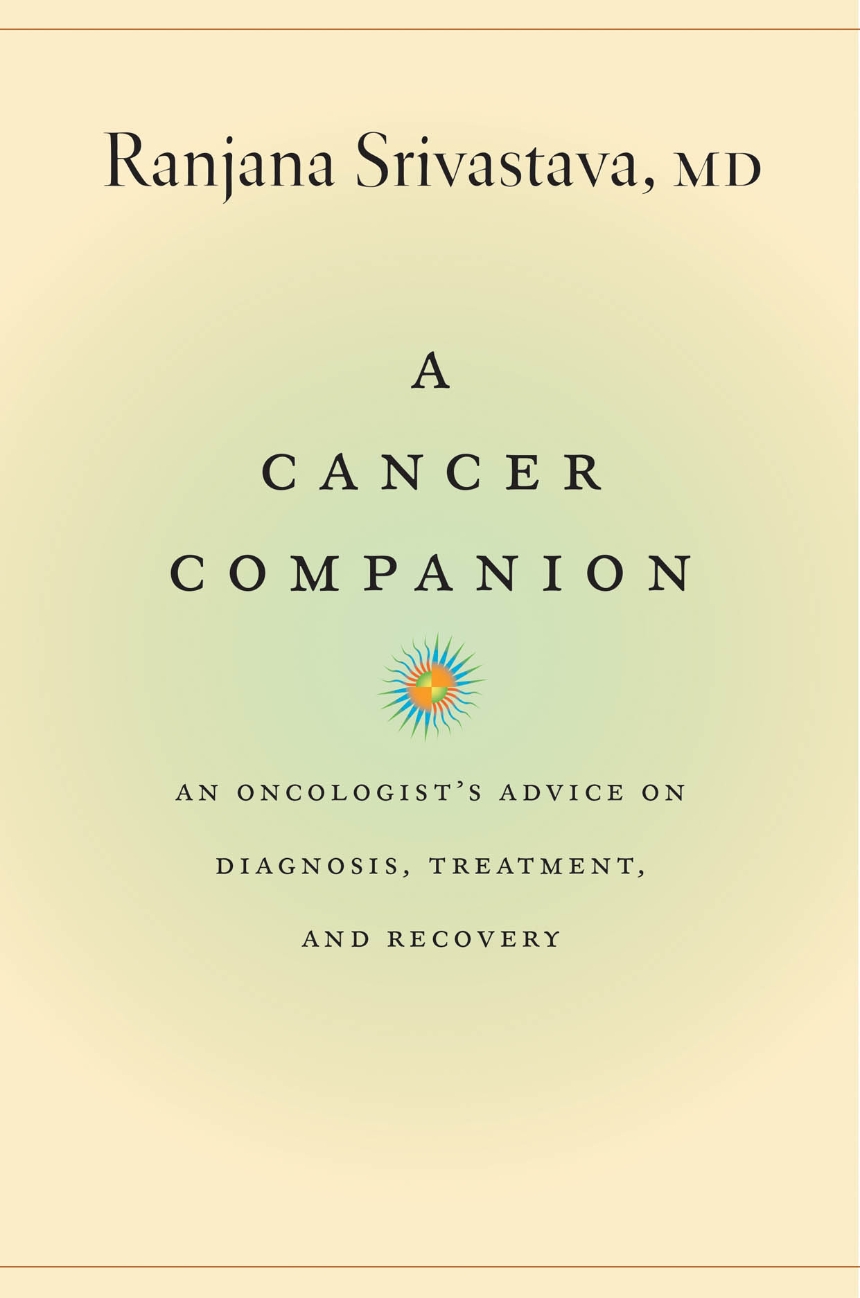A Cancer Companion
An Oncologist’s Advice on Diagnosis, Treatment, and Recovery
9780226479347
9780226306643
9780226306780
A Cancer Companion
An Oncologist’s Advice on Diagnosis, Treatment, and Recovery
Cancer. It’s the diagnosis no one wants to hear. Unfortunately though, these days most of us have known or will know someone who receives it. But what’s next? With the diagnosis comes not only fear and uncertainty, but numerous questions, and a lot of unsolicited advice. With A Cancer Companion, esteemed oncologist Ranjana Srivastava is here to help, bringing both experience and honesty to guide cancer patients and their families through this labyrinth of questions and treatments.
With candor and compassion, Srivastava provides an approachable and authoritative reference. She begins with the big questions, like what cancer actually is, and she moves on to offer very practical advice on how to find an oncologist, what to expect during and after treatments, and how to manage pain, diet, and exercise. She discusses in detail the different therapies for cancers and why some cancers are inoperable, and she skillfully addresses the emotional toll of the disease. She speaks clearly and directly to cancer patients, caretakers, and their loved ones, offering straightforward information and insight, something that many oncologists can’t always convey in the office.
With candor and compassion, Srivastava provides an approachable and authoritative reference. She begins with the big questions, like what cancer actually is, and she moves on to offer very practical advice on how to find an oncologist, what to expect during and after treatments, and how to manage pain, diet, and exercise. She discusses in detail the different therapies for cancers and why some cancers are inoperable, and she skillfully addresses the emotional toll of the disease. She speaks clearly and directly to cancer patients, caretakers, and their loved ones, offering straightforward information and insight, something that many oncologists can’t always convey in the office.
Reviews
Table of Contents
Foreword
Introduction
1. What is Cancer?
2. Where Do I Even Begin?
3. How is Cancer treated?
4. Finding an Oncologist
5. What to Expect When Having Chemotherapy
6. Deciding Whether to have Treatment and Understanding Side Effects
7. How Do I Know if My Chemo is Working?
8. I Could Do with a Break from Chemotherapy
9. When to Stop Treatment
10. I’m Off Chemotherapy—What Now?
11. Do I Need Radiotherapy?
12. Why Can’t I Have an Operation to Remove the Cancer?
13. Is a Clinical Trial for Me?
14. What Happens Once I Finish Treatment?
15. I’m Getting Worse—What is the Best Course?
16. Managing Pain
17. How Cancer Affects Appetite, Diet, and Weight
18. Why Natural Therapies Aren’t the Answer
19. How Much Exercise Should I Be Doing?
20. I’m Always Tired
21. Lost Sexuality
22. Tackling Anxiety and Depression
23. Does My Oncologist Have Feelings?
24. Is My Family at Risk and What Can I Do?
25. Handling Unexpected Outcomes
26. How Long Do I Have?
27. What is Palliative Care?
28. How Do I tell the Kids?
29. Keeping Hope Alive
30. Advance Care Planning
31. Will My Death Be Painful?
32. The Impact of Being a Carer
Afterword
Glossary
Acknowledgements
Introduction
1. What is Cancer?
2. Where Do I Even Begin?
3. How is Cancer treated?
4. Finding an Oncologist
5. What to Expect When Having Chemotherapy
6. Deciding Whether to have Treatment and Understanding Side Effects
7. How Do I Know if My Chemo is Working?
8. I Could Do with a Break from Chemotherapy
9. When to Stop Treatment
10. I’m Off Chemotherapy—What Now?
11. Do I Need Radiotherapy?
12. Why Can’t I Have an Operation to Remove the Cancer?
13. Is a Clinical Trial for Me?
14. What Happens Once I Finish Treatment?
15. I’m Getting Worse—What is the Best Course?
16. Managing Pain
17. How Cancer Affects Appetite, Diet, and Weight
18. Why Natural Therapies Aren’t the Answer
19. How Much Exercise Should I Be Doing?
20. I’m Always Tired
21. Lost Sexuality
22. Tackling Anxiety and Depression
23. Does My Oncologist Have Feelings?
24. Is My Family at Risk and What Can I Do?
25. Handling Unexpected Outcomes
26. How Long Do I Have?
27. What is Palliative Care?
28. How Do I tell the Kids?
29. Keeping Hope Alive
30. Advance Care Planning
31. Will My Death Be Painful?
32. The Impact of Being a Carer
Afterword
Glossary
Acknowledgements
